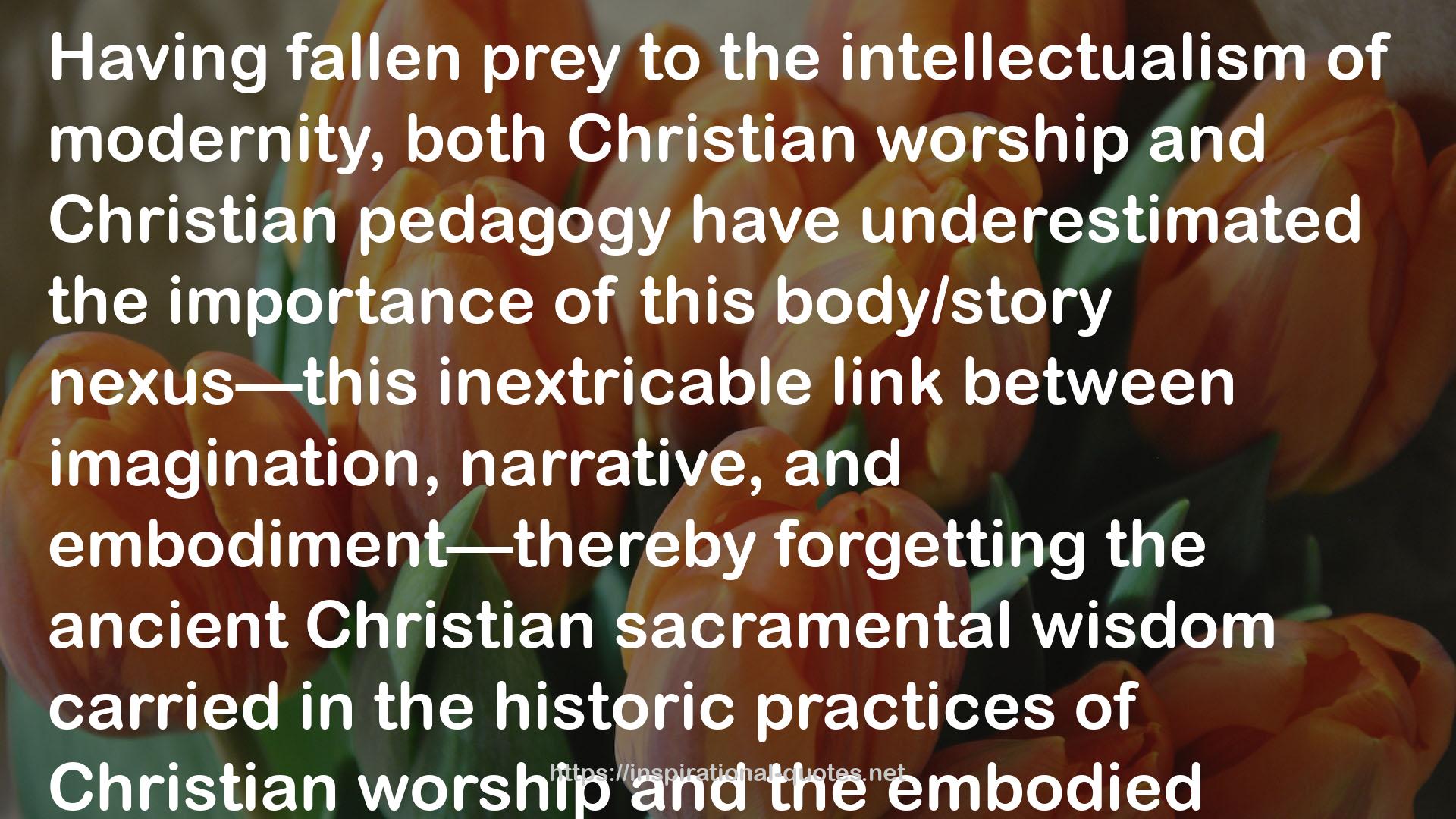" Having fallen prey to the intellectualism of modernity, both Christian worship and Christian pedagogy have underestimated the importance of this body/story nexus—this inextricable link between imagination, narrative, and embodiment—thereby forgetting the ancient Christian sacramental wisdom carried in the historic practices of Christian worship and the embodied legacies of spiritual and monastic disciplines. Failing to appreciate this, we have neglected formational resources that are indigenous to the Christian tradition, as it were; as a result, we have too often pursued flawed models of discipleship and Christian formation that have focused on convincing the intellect rather than recruiting the imagination. Moreover, because of this neglect and our stunted anthropology, we have failed to recognize the degree and extent to which secular liturgies do implicitly capitalize on our embodied penchant for storied formation. This becomes a way to account for Christian assimilation to consumerism, nationalism, and various stripes of egoisms. These isms have had all the best embodied stories. The devil has had all the best liturgies. "
― James K.A. Smith , Imagining the Kingdom: How Worship Works
